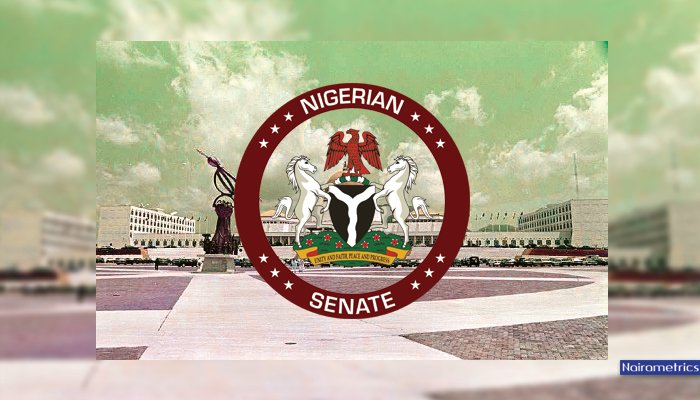The Nigerian Senate has set up a 12-member ad-hoc committee to respond to growing international pressure over allegations that the Nigerian government is supporting or ignoring acts of persecution against Christians, amid calls by some U.S. lawmakers to designate Nigeria a “Country of Particular Concern.”
The decision followed a closed-door session held on Tuesday, where senators deliberated on what they described as “misleading and damaging narratives” being pushed by foreign governments and advocacy groups about the country’s internal security situation.
The move comes shortly after U.S. Senator Ted Cruz and several members of the U.S. Congress renewed calls for the U.S. State Department to officially list Nigeria among countries accused of tolerating or promoting religious persecution, an action that could attract diplomatic and economic sanctions.
The committee, chaired by Senate Leader Opeyemi Bamidele, includes Senators Victor Umeh, Yemi Adaramodu, Aniekan Bassey, Niyi Adegbonmire, Abdul Ningi, Titus Zam, Tony Nwoye, Tahir Munguno, and Asuquo Ekpenyong, among others.
Read also:
- MURIC counters US Senators’ claim on Christian persecution in Nigeria
- Pray for unity, recovery of Nigeria, Okowa urges Christians
- US Congressman vows to defend persecuted Christians in Nigeria, ctes alarming death toll, Church attacks
The panel’s mandate is to produce a “comprehensive position paper” backed by verified data, to guide both the Senate and the Federal Government in responding to U.S. allegations and similar international concerns.
Senate President Godswill Akpabio, who announced the formation of the committee, said the National Assembly must ensure that Nigeria’s position is factually grounded.
“The position paper must be backed with verifiable facts and statistics,” Akpabio said. “We cannot allow the world to continue to view Nigeria through a distorted lens.”
Earlier in plenary, the Senate resolved to directly engage members of the U.S. Congress and other international stakeholders to “correct misconceptions” about Nigeria’s internal security challenges, which have often been framed abroad as a systematic genocide against Christians.
The resolution followed a motion sponsored by Senator Ali Ndume (APC, Borno South), who drew attention to the growing impact of such narratives on Nigeria’s global reputation and economic interests.
During debate, several senators argued that while religious tensions exist in parts of the country, the violence being witnessed, particularly in the North, is largely driven by terrorism, criminality, and resource-based conflicts rather than religious persecution.
Akpabio, in his remarks, proposed that a select delegation of lawmakers should visit the United States to hold private meetings with American counterparts and policymakers to present Nigeria’s perspective.
“There are misconceptions that need to be corrected,” he said. “We are dealing with a complex terrorist threat, and it’s important that our counterparts in the U.S. understand that the violence affects both Christians and Muslims.”
Supporting the motion, Senator Jimoh Ibrahim (APC, Ondo South) said Nigeria’s counterterrorism efforts should be driven by evidence-based, context-specific strategies rather than foreign assumptions.
He pointed to the forthcoming National Security Summit as an opportunity to craft local solutions that reflect Nigeria’s realities.
Senator Ndume, while presenting his motion, cited multiple examples to demonstrate the non-sectarian nature of the ongoing violence. He referenced the July 2023 attacks on farming communities in Plateau State that left over 20 people dead—mostly Christians—as well as bandit attacks in Katsina and Zamfara States the following month that killed dozens of Muslim villagers.
He also noted that in Borno and Kaduna States, terrorist groups have bombed both churches and mosques, targeting innocent civilians regardless of faith.
“This is not a Christian-versus-Muslim war,” Ndume said. “It’s a war against all Nigerians.”
Following the debate, the Senate Leader moved a motion to suspend further discussion to allow for deeper deliberation in executive session and finalisation of the delegation that will engage the U.S. Congress.
The motion was seconded by Senator Abdul Ningi (PDP, Bauchi Central).
The Senate’s move appears to be part of a broader effort by the Tinubu administration to counter what officials have described as a “misrepresentation” of Nigeria’s religious and security landscape.
In December 2022, the U.S. State Department had controversially removed Nigeria from its list of “Countries of Particular Concern,” a decision that drew criticism from human rights groups. But recent renewed advocacy from American lawmakers, led by Senator Cruz,






